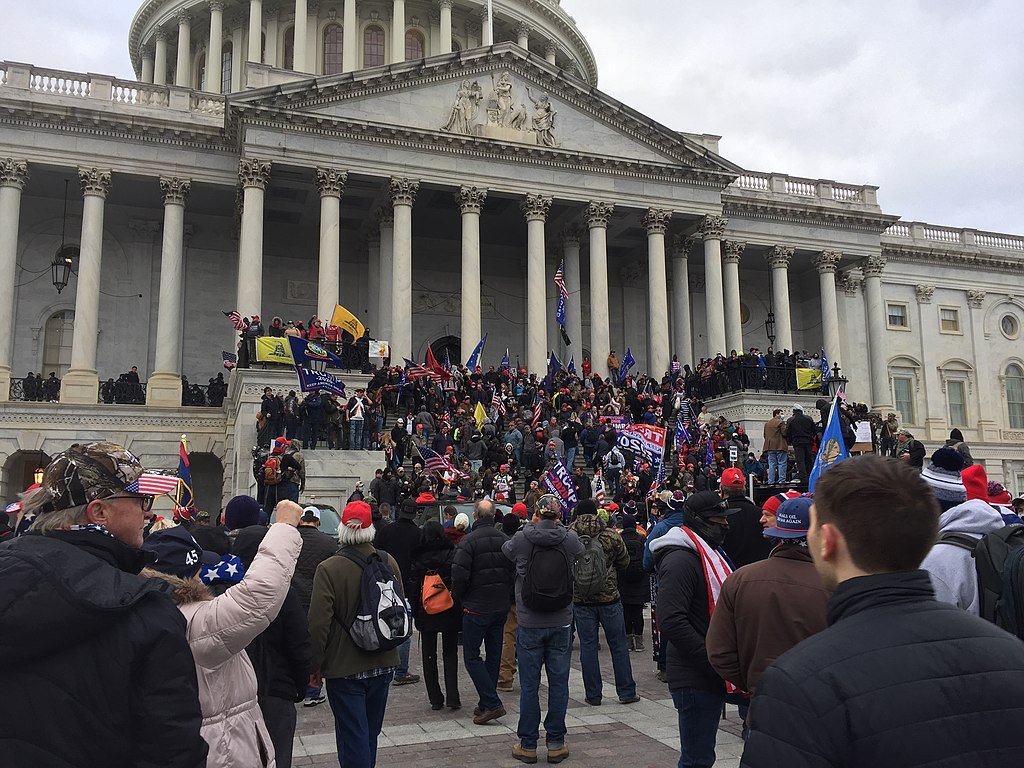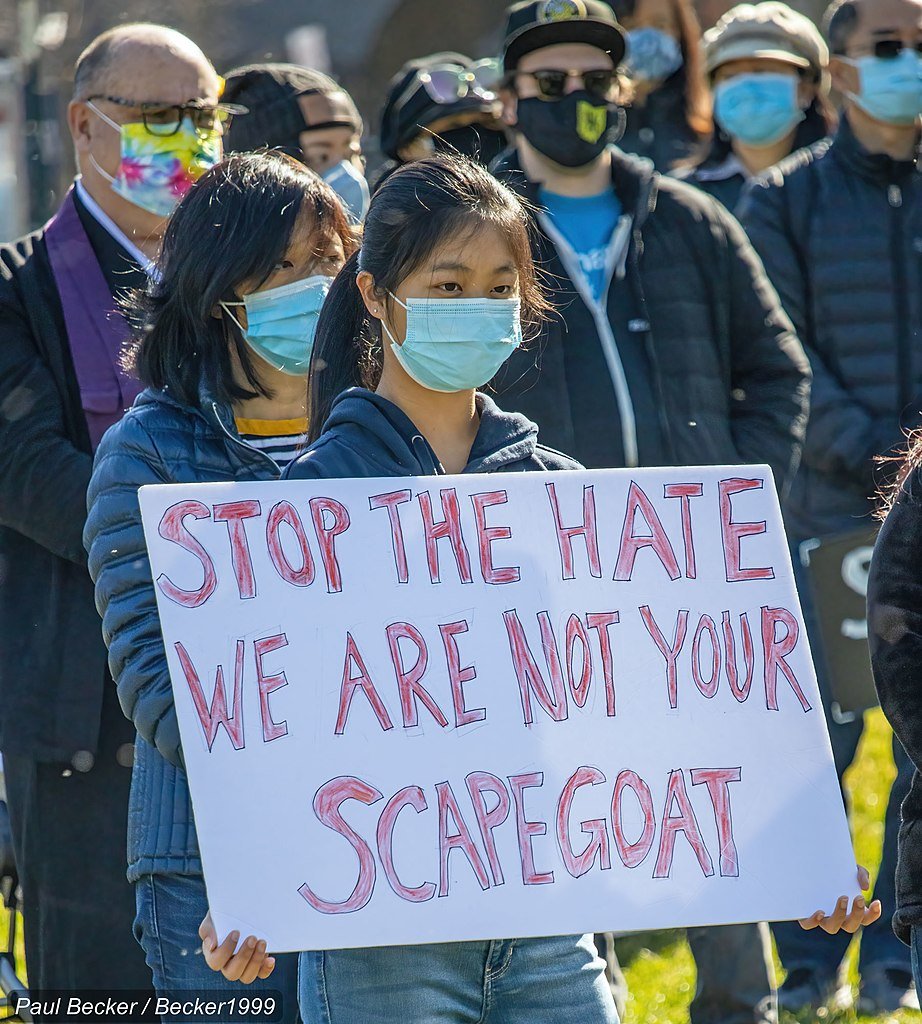In an appropriate and utterly unsurprising choice, the American Dialect Society has picked Covid as its Word of the Year for 2020. The ADS press release detailing the choice, and the choices for its other categories of words, is here. You can read that for a full accounting of the history and purpose of the society’s choice there.
I participated in the selection this year, which is something I normally don’t get to do. In the past, the WOTY selection process is held at the ADS’s annual meeting in early January. I have on occasion participated, but usually scheduling and travel budget precludes my attending. But this year, the ADS canceled its annual meeting, and the WOTY nominations and voting were held virtually, over Zoom.
Overall, the virtual format was superior to an in-person meeting. First, it allowed a more diverse group of attendees. There were over three hundred participating in the discussion and voting, and an uncounted number of others watching the livestream on YouTube. It also allowed for more discussion. While the number who literally spoke was the same as past, in-person sessions I’ve attended, the chat feature on Zoom was alive with comments and questions from many more. And the voting process was streamlined, with no more raising and time-consuming counting of hands. This year, each round of voting took less than a minute. Of course, the in-person contact was absent over Zoom, and that is a minus.
The process is, and has been, in two parts. First, a smaller group meets to nominate words and to decide what categories the nominees belong in. About thirty people participated this year. I found this first, two-hour session the more interesting of the two as we got a chance to discuss the nominees in much more detail and in a more focused manner than is possible with 300+ attendees. The second half held two days later, is the larger meeting where the vote is held. Nominations can be made from the floor, and some changes were made to the nominees. Overall, it’s rather democratic, although there is a bit of autocracy in the name of keeping the meeting moving.
The categories and the nominees and winners are:
WORD OF THE YEAR (2020)
*Covid: shorthand for Covid-19, the name given to the disease caused by infection from novel coronavirus; also used more broadly to refer to the pandemic and its impacts 2020: used to sum up chaotic and despondent feelings inspired by the year’s events
antiracism: the practice of actively working to prevent or combat racism
Before Times: the time before the beginning of the pandemic (followed by Now Times After Times)
BIPOC: acronym for Black, Indigenous, and People of Color or Black and Indigenous People of Color
doomscrolling: obsessively scanning social media and websites for bad news
pandemic: epidemic over a wide area affecting a large proportion of the population
social distancing: keeping away from others as much as possible to prevent the spread of
coronavirus: should need no definition
unprecedented: never having happened, existed, or experienced before
As I said, the choice of Covid for word of the year was rather obvious, but 2020 gave it a run for its money. I thought pandemic would get more play, but its generic nature worked against it; most thought that it could apply to many other years and circumstances, while Covid was both specific to this year and linguistically more productive. 2020 was one I had not considered, but as several people who advocated for it commented, the angst of this year was not caused by Covid alone; there was a high-stakes US presidential election, wildfires and climate change, racism and police murdering Black people as well.
MOST LIKELY TO SUCCEED
*antiracism: the practice of actively working to prevent or combat racism
BIPOC
contactless: requiring no physical contact, to avoid transmitting disease
curbside: adjacent to a curb, as for pickup of goods without entering a store or restaurant
gigafire: a wildfire that burns at least a million acres of land
Zoomer: term for Generation Z, originally modeled on boomer, now highlighting their use of Zoom for remote learning and other activities
Antiracism rightly took the most-likely-to-succeed prize in a landslide. BIPOC did not do as well, either because antiracism siphoned votes away from it, or because there was a feeling it wasn’t all that familiar to many. Contactless came in second. At first, I thought this (and curbside) was a poor choice for this category as it would likely disappear once the lockdowns were over, but the discussion convinced me that many people, especially women, don’t like the idea of nameless delivery people knocking on their door, and companies are recognizing that this is desired feature for many customers. My personal favorite was gigafire, which despite the technical misuse of the prefix, is a term that, unfortunately, will be with us for years to come, and I felt the issue of climate change was not well represented among the nominees. Zoomer was also a socially interesting choice. The word predates the pandemic and the use of Zoom by the masses, having been Generation Z’s counterpart to boomer. But the fact that much of that generation’s academic and social life is taking place virtually is shaping that generation’s qualities in ways we’re only beginning to understand.
MOST USEFUL
*Before Times: the time before the beginning of the pandemic (followed by Now Times or After Times)
Blursday: humorous indication of difficulty in determining what day of the week it is
bubble/pod: terms for the group with which one remains in quarantine
PPE: abbreviation for personal protective equipment
superspreader: a patient or event responsible for spreading infection to many people
Before Times, a reference to life before Covid, took the most useful category. I really like it, with its blending of current events with a sci-fi quality. Blursday was a popular choice, with its humorous take on the problem of not being able to distinguish one day of the week from another. Going in, I thought bubble would do better than it did, but as one commenter pointed out that the term represents a degree of privilege. Those in low-paid, “essential,” jobs often cannot literally afford to live in a protective bubble.
POLITICAL WORD OF THE YEAR
*abolish/defund: verbs used (at times hyperbolically) to call for drastic restructuring or reforming of law enforcement in the aftermath of the George Floyd police killing
dissent collar: jabot collar worn by Supreme Court Justice Ruth Bader Ginsburg when issuing dissenting opinions, and worn by others in her honor after her death
freedumb: reckless or thoughtless invocation of “freedom,” for instance in refusing to wear a mask
petromasculinity: form of masculinity on display during pro-Trump highway rallies
red mirage/blue shift: appearance from early returns in the 2020 presidential election that voting was skewing toward Republicans before more Democratic-leaning votes were counted
Abolish and defund are rather linguistically and politically interesting because both proponents and opponents sometimes use them literally, while the majority of people understand them to be hyperbolic, using some of the vast resources devoted to policing for other, less-well-funded, emergency response services, like mental health services. Dissent collar is a nice nod to RBG, but I don’t think term is especially emblematic of political events of the year. Freedumb is a funny-once joke. I really like petromasculinity, with its combination of testosterone, Trump, and support for Big Oil, but I hadn’t heard of it before the nomination session, and I don’t think it has had much currency. There was a discussion of red mirage/blue shift in both the nominating and voting sessions over whether these terms were ephemeral or whether they would stand the test of time. Blue shift, however, dates to at least the 2018 election, in relation to the composition of the House of Representatives, so I think the terms will be relevant in future elections, but they don’t have the vitality or importance of abolish/defund.
DIGITAL WORD OF THE YEAR
*doomscrolling
#BlackInTheIvory: hashtag used to amplify the voices of Black scholars and their experiences of systemic racism within academia
fancam: video clip made by a fan of a musical act, especially a K-Pop band, which can be used to derail an online conversation or as a form of subversive political protest; also a verb
sus: clipping of suspicious often used in the game Among Us to label a player suspected of being an impostor
TikToked: to be made the target of a campaign mobilizing TikTok users, as for political purposes
I find all these terms fascinating in their own way, but doomscrolling took it in a landslide. While the others all have things to recommend them, they are all products of particular digital niches, while doomscrolling has been experienced by a wide cross-section of the country.
ZOOM-RELATED WORD OF THE YEAR
*you’re muted: refrain on Zoom to remind someone to unmute when speaking
oysgezoomt: fatigued or bored by Zoom (formed in Yiddish)
Zoombombing: disruptive intrusion on a Zoom session by online trolls
Zoom fatigue: exhaustion experienced by being over-exposed to Zoom
zumping: [Zoom + dumping] breaking up with someone via Zoom
Much as I love oysgezoomt, I take perverse delight in the winner in this category being the only one without the word zoom in it. Zoom Video Communications, Inc. has gotten enough free publicity this year.
PANDEMIC-RELATED WORD OF THE YEAR
*social distancing: keeping away from others as much as possible to prevent the spread of coronavirus
contact tracing: the process of identifying who may have come into contact with a person carrying an infectious disease like coronavirus
coronials: the coronavirus generation, for the predicted baby boom in the wake of the pandemic
Covid
flattening the curve: the effort to slow the spread of coronavirus by taking community isolation measures
moronavirus: disparaging term for foolish behavior or ideas related to the coronavirus pandemic
These are rather straightforward, and I don’t have much to say about them. There was a discussion about whether or not the appropriate term was physical distancing, as that is literally what is intended and shouldn’t imply a severing of social ties, which are necessary to one’s mental health. But this was an audience of linguists, and pretty much everyone recognized that no matter which was more “technically correct,” the term that everyone uses is social distancing.
SLANG/INFORMAL WORD OF THE YEAR
*the rona: playful term for “coronavirus” (also: Rona, Miss Rona, Aunt Rona)
covidiot: a person who foolishly ignores COVID-19 protocols 39
girls, gays, and theys: inclusive form of address encompassing female-identifying, LGBTQ, and nonbinary identities
poggers: term used to denote excitement, derived from a Twitch emote showing someone with a surprised expression
WAP: acronym for “wet-ass pussy,” from the song of that title by Cardi B and Megan Thee Stallion
I’m a middle-aged, cis-het, white man; I was not familiar with the last three on this list. (To my credit, I knew who Cardi B is and had a vague sense that WAP had been in the news, but not much more than that.) The rona took the category in a run-off with WAP. I found the nominating session discussion of this quite illuminating. I can’t do justice to a further definition of girls, gays, and theys or of poggers, so if like me you hadn’t heard these before, you’ll have to Google. There were objections to covidiot (and moronavirus above) in that the terms are making use of slurs for people with disabilities, and we shouldn’t promote that by giving them airtime. And WAP really is an important word because it is a counter to the overt male sexuality one typically finds in rap music, and the fact that makes people uncomfortable reveals the sexual double standard in the genre and promotes female empowerment.
EUPHEMISM OF THE YEAR
*essential (workers, labor, businesses): used for people, often underpaid, who are actually treated as expendable because they are required to work and thus risk infection from coronavirus
everything is cake: expression of extreme distrust, based on memes in which objects turn out to be hyper-realistic cakes
freedom seeds: nickname for ammunition used by the National Rifle Association
humaning: marketing term for a consumer-oriented approach
officer-involved shooting: shooting by a police officer
Toobin, v.: to expose oneself on Zoom in the manner of Jeffrey Toobin
I thought that officer-involved shooting was the more important and egregious euphemism, but the majority went with essential. In the nominating session, there was a concern that people would misinterpret the inclusion of essential worker, hence the shortening to just essential. The euphemistic aspect is that in most cases the work is essential, but the worker is treated as disposable. And there are a few businesses, like World Wrestling Entertainment in Florida, as being classed as essential with no legitimate claim to that title.
EMOJI OF THE YEAR

















